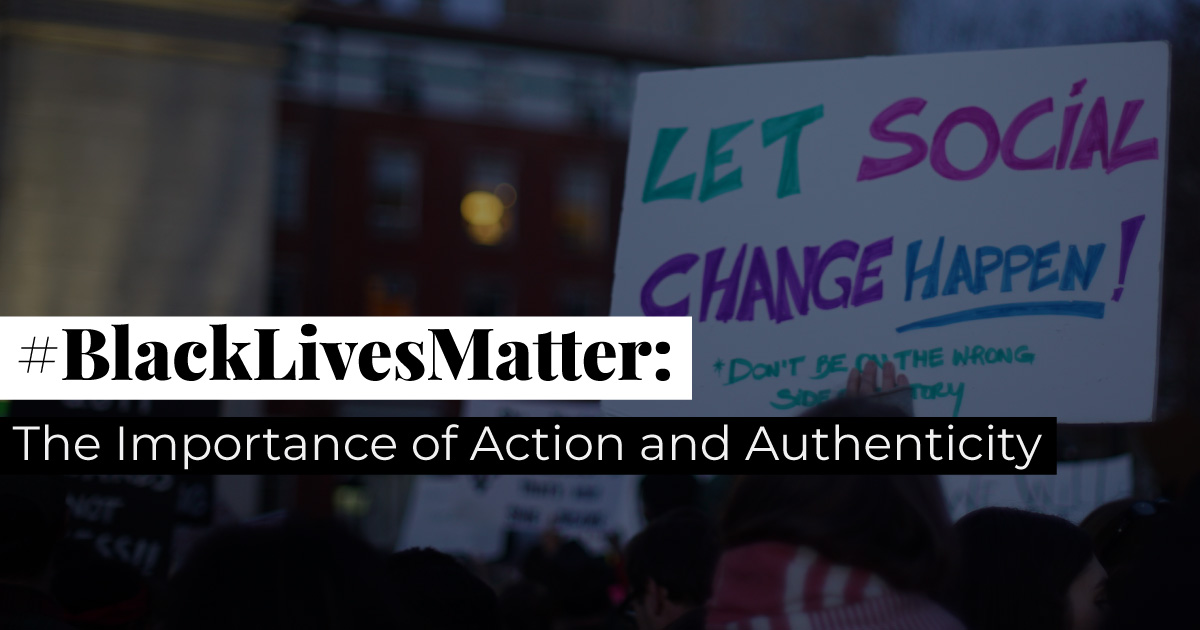For many consumers, how and if an executive and their company respond to social issues has grown increasingly important. In one survey, 72% of Americans said it was important to them that companies they purchase from reflected their values. In another survey, 81% believed CEOs have an obligation to speak out about social issues.
In the wake of nationwide protests in the U.S. against racist discrimination and police brutality, many brands and executives have taken to social media to voice their support for the black community. Although many of these messages have been praised, an increasing number have received backlash too. For instance, CBS and L’Oréal have been called out by consumers for their past controversies that seem to contradict their support of the movement. In this article, we will look at why messages of solidarity must be authentic and one effective example of how executives can use their online presence to promote awareness.
Why Executives Must be Authentic When Promoting Solidarity with #BlackLivesMatter
God-is Rivera, the global director of culture and community at Twitter, says brands must consider their stance and historic involvement with social issues. She states, “I think it’s really important that brands first have to really think about, have they built equity with this community?”
So if you have never spoken out about the cause before, should you stay silent now for fear of appearing inauthentic? Not necessarily. The idea of an executive building “equity” does not mean that if they have never spoken out against racism that they should not start now. Rather, executives must show that promoting solidarity is not a one-time action for them. This means engaging in sustained efforts and actions not just in times when tensions are high, but reiterating their stance and connecting it to their brand’s core values.
How CEOs Can Use Their Platform to Promote Awareness and Change
During the #BlackLivesMatter protests, many CEOs and executives have used online platforms to spread awareness about the issue, to state how they are contributing to the cause, and to share their own personal experiences as well. Using social media is an effective way to spread awareness and provide resources that support social causes.
One example is Citigroup Inc.’s CFO, Mark Mason, who wrote an article titled “I can’t breathe.” on the company’s blog, The Citi Blog. He details why #BlackLivesMatter and these recent events have had an impact on him and why he felt he needed to step up to talk about it. By writing about George Floyd and the protest on the Citigroup site, both he and his company are promoting a unified stance. The article has garnered hundreds of comments praising both Mason for his words and Citigroup for being active participants in social issues.
Mason also writes, “I’m proud to work at Citi, an organization that cherishes diversity and inclusion and is willing to stand up for those values when they are threatened, whether it’s working to close the gender pay gap in our industry or calling out the violence of white supremacists in Charlottesville.”
Citigroup has a history of taking a strong stance on several social issues. In addition to the examples Mason mentioned, in 2018, Citigroup took a stand against gun violence in the U.S., announcing it will be restricting its business with certain firearms groups that did not meet its regulations
This is the type of equity Rivera was describing. By having a long history of involvement—not just in promoting awareness but also making changes within the company to reflect their stance—Citigroup and its executive’s messages come across as more authentic.
During times when consumers are looking to brands and executives for information (as was the case with COVID-19) or to learn more about their stance during the #BlackLivesMatter protests, using an online platform is an essential way to share information and messages of solidarity.
Some content resonates more effectively when delivered by an executive, rather than a brand’s social media account. Click the button below to learn more about social media strategy and how to best use your company’s executives to deliver important information.
href="#" data-color-override="false" data-hover-color-override="false" data-hover-text-color-override="#fff">Content That Resonates Best From Executives on Social Media


